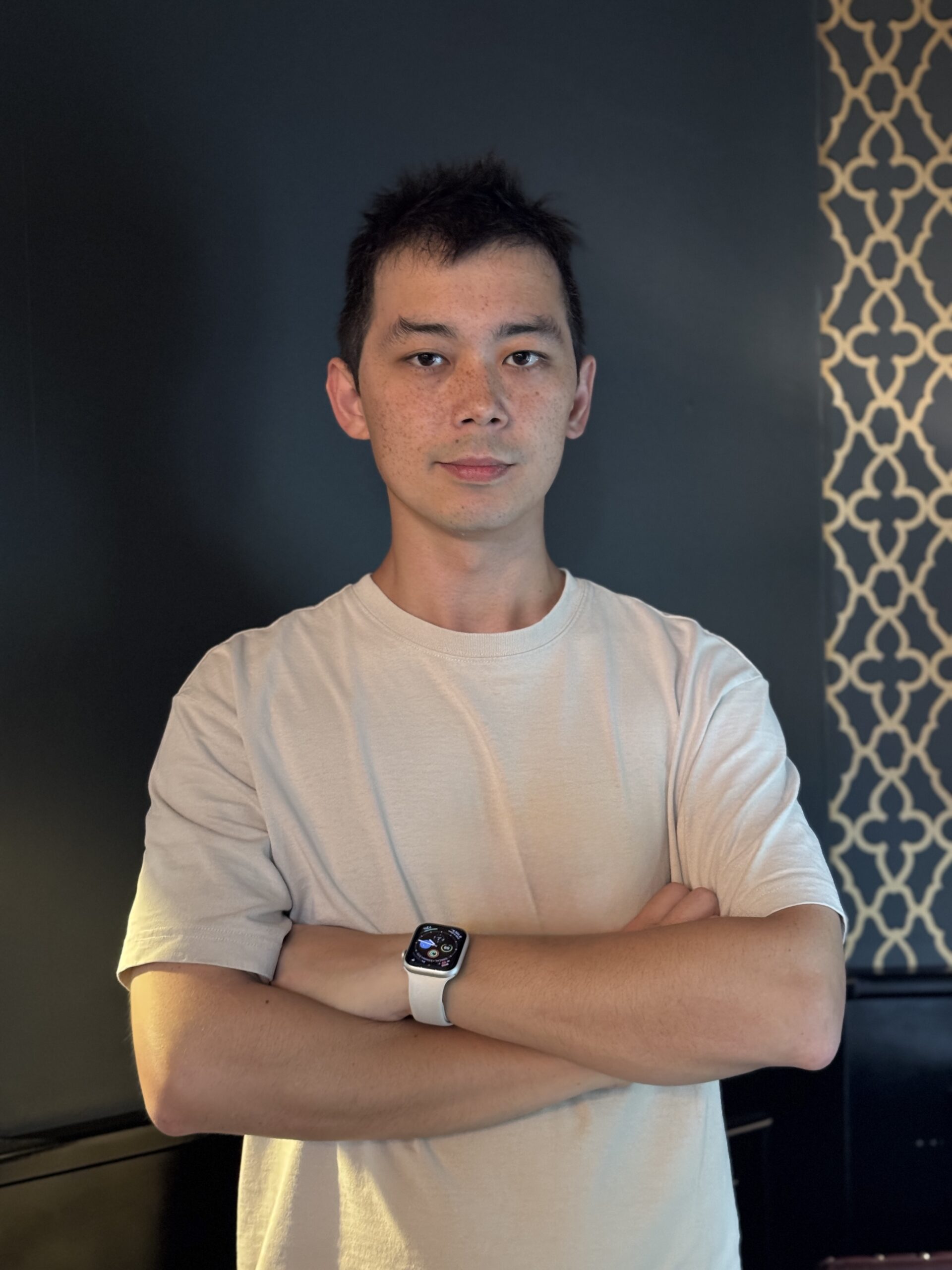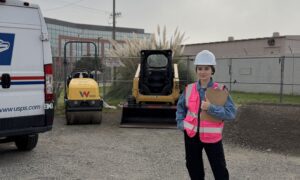In the fast-paced world of IT, where innovation and efficiency drive success, standing out as an engineer requires more than just technical expertise – it demands the ability to amplify impact across teams, projects, and organizations. Aleksandr Chikovani, a Chief Systems Engineer from EPAM Systems, Inc. (NYSE: EPAM) has built a career on doing exactly that. From skipping career levels to focus on technical depth, to helping struggling projects climb out of the “red zone,” Alex has honed a unique approach to engineering that prioritizes speed, adaptability, and enabling others.
In this interview, Alex shares practical insights on what it takes to become a high-impact engineer. Drawing from lessons learned across 30 projects and 17 clients, he discusses the importance of working smarter, prioritizing effectively, and scaling impact beyond individual contribution. Whether you’re an aspiring engineer or a seasoned professional looking to level up, these notes offer valuable strategies to help you deliver results, grow your career, and make a lasting impact in the field.

Let’s start with the basics – who are you, and why did you decide to do this interview?
AC: I’m Alex, a Chief Systems Engineer from EPAM Systems, Inc. (NYSE: EPAM) specializing in Data, Cloud, and DevOps, with a recent focus on ML. I’ve worked on over 30 projects for almost 20 different clients, always with the goal of making things work – and making them work fast.
> I decided to do this interview because, over the years, I’ve learned a lot from both successes and mistakes, and I want to share those lessons. While I don’t believe in silver bullets beyond ‘think harder, do better,’ I hope some of my insights can help others improve, work smarter, and deliver faster results. Ultimately, this benefits all of us – IT is a small, interconnected world, and the more ideas we share, the faster we evolve and make the world a better place.
What does a Chief Systems Engineer do exactly? It’s a title that sounds impressive, but what does it mean in practice?
AC: At its core, my role is about being a multiplier in a system. While I’m an individual contributor, my focus is on amplifying the impact of the entire team. It’s not just about solving problems myself – it’s about enabling others to solve problems faster, more effectively, and with greater stability.
> Years ago, I gave a talk where I shared this idea: ‘A DevOps engineer is your friend in the journey. You don’t need a friend to go fast – you need a friend to go far.’ My role now is about striking the right balance between applying industry best practices to support long-term success and knowing when to cut corners to deliver something quickly. Often, speed is critical – delivering fast can be the difference between staying in the game or losing out to competitors who ship a half-baked but functional solution and capture the audience first. Ultimately, it’s about creating the conditions for teams to succeed – whether that’s by building scalable systems, improving processes, or simply unblocking developers so they can focus on what they do best.
What advice would you give to engineers who want to grow and become high-impact contributors?
AC: If I had to highlight one thing above all else, it would be analysis. In my opinion, the most competitive professionals don’t just do their job – whether it’s playing chess, driving a car, or swimming laps – they also take the time to review how they performed, analyze what went well and what didn’t, and learn from it. That’s the key to growth: understanding your own process and continuously improving it.
> One habit that’s helped me personally is taking notes after every project. At the end of each engagement, I sit down and reflect on the experience, distilling it into a single valuable lesson. It’s not about writing pages of documentation – it’s about identifying the one major takeaway that can make me better next time. Over the years, this has become my ‘book of knowledge,’ and it’s been invaluable in helping me refine my skills and approach.
> Ultimately, growth isn’t just about working harder or faster – it’s about learning from every experience. It’s about identifying what works, applying it consistently, and avoiding the same mistakes twice. Analysis gives you the tools to improve with every project, so you’re not just repeating tasks – you’re evolving with each step.
That’s an interesting take, but it’s not exactly common these days. Why didn’t you mention LLMs (Large Language Models)? Aren’t they supposed to be the future of everything?
AC: Well, that’s only if I had to pick just one point. Obviously, I do recommend using LLMs – they’re an incredible tool for saving time and boosting productivity. EPAM made a good report on that – I remember there was a huge productivity gain, I’ll share the link with you later. But, like any tool, it’s critical to understand what it is and how to use it effectively.
> I’ve seen two extremes: some people think LLMs will solve all their problems, while others dismiss them as completely worthless. The truth is, LLMs are just tools – like a hammer. A hammer is perfect for hitting nails, but it’s one of the worst tools for tightening a screw.
> I’ve been working with LLMs since late 2022, and the progress has been remarkable, especially in terms of instrumentation and applicability. In my opinion, they’re fantastic for many tasks, but you have to remember the fundamental principle: garbage in, garbage out. And I’m not just talking about the training data, which is inevitably full of fake information, human errors, and even sarcasm. I’m also talking about how people interact with LLMs. By design, they’re trained to be engaging, so they’ll often support you – even if you’re doing something completely ridiculous.
> I won’t dive too deep into prompt engineering here – there’s already a ton of advice online, and some of it even works. My advice is simple: experiment, see what works for you, and treat LLMs as a tool to enhance your work, not as a magic solution.
Analysis, learning new technologies, experimenting with LLMs – it all takes time. Meanwhile, you have a job to do and deadlines to meet. Is there a secret to how you manage your time effectively?
AC: Honestly, there’s no magic formula – it’s just a matter of how you choose to spend your time. For me, it’s a bit of a sad-but-true story: I don’t have other interests. My life revolves around two things – my family and my work. I don’t spend time on hobbies like Netflix, fishing, or sports. That’s just how I’m wired, but I understand that’s not for everyone.
> So, for those who want a more balanced approach, the key is prioritization. It’s about understanding what’s truly important right now and focusing your energy there. One concept I’ve found incredibly useful is somewhat close to just-in-time provisioning. It’s the idea of delivering what’s needed at the moment, rather than over-engineering or trying to solve every possible problem upfront.
> For example, when you’re building a data analytics pipeline, there are countless details to consider – data ingestion, transformation logic, error handling, scalability, security, and so on. But before diving into all of that, the first step should always be to talk to the business. In many cases, they’re looking for tangible results quickly, and they’re okay with improving things later.
> So, you might start by focusing only on the happy path – getting the pipeline to work for the most common scenarios and failing fast if something unexpected happens. There’s no need to overthink every edge case or build a perfect error-handling system from day one. Once you’ve delivered that initial result, you can iterate and improve. And if you’re one of the senior team members, those incremental improvements can often be delegated to less experienced colleagues, giving them a chance to grow while freeing you up to focus on the next big challenge.
That’s a great point about focusing on the happy path first and delegating incremental improvements to less experienced colleagues. Delegation is often seen as a key skill for senior engineers, but it’s also one of the hardest to master. Many engineers struggle with letting go of tasks or feel like they have to redo work that wasn’t done ‘right.’ How do you approach delegation in a way that actually works and helps you scale your impact?
AC: Oh, delegation – that’s the word you hear all the time once you hit “senior engineer.” Delegate, delegate, delegate – it’s almost like your manager doesn’t know any other advice. And let’s be honest, it’s hard to do. You delegate a task, but your team doesn’t “do it right”, and you end up reworking what they’ve done. But why does that happen?
> A former boss of mine shared a great insight: when someone has a lot of tasks to choose from, they’ll start with the one they understand best. So, as a senior engineer, your job isn’t just to tell your teammate, “Implement this module”. It’s to make sure they have enough context to actually succeed.
> The amount of information they need will depend on their level of expertise. For junior colleagues, you might need to explain why the module is needed, how to verify it works, and even provide boilerplate code to get them started (which, by the way, is something LLMs can generate easily). For more experienced colleagues, you might only need to point them in the right direction and specify where to stop.
> Delegation doesn’t stop at assigning tasks – it also involves checking progress. Especially when you’re working with a new team that hasn’t yet built strong communication habits, you need to pay close attention to the details of their work. A status update like, “I’ve been working on task 123, will continue” doesn’t tell you much. Ask for specifics, review their progress, and make sure they’re on track.
> Here’s an example: In one of my teams, an engineer was working on implementing Infrastructure as Code (IaC) for a new module we were preparing to move to production. They reported progress to their team lead all week, and the team lead shared updates with me during a sync. When I dug deeper, I found the engineer had spent days automating the first-ever provisioning of cloud resources – something that would only happen once in the real world. I asked, “Can we handle this first provisioning semi-automatically, document it for the rare chance we’ll need it again, and move on?” That saved us another week of unnecessary work and allowed us to hit our deadlines.
> Delegation isn’t just about handing off tasks – it’s about enabling your team to succeed, giving them the right level of guidance, and staying involved enough to catch inefficiencies or missteps early. It’s a skill that takes time to develop, but when done right, it’s one of the most powerful tools for scaling your impact.
You’ve been talking about the role of an individual contributor and becoming a high-impact engineer, but now you’re talking about delegation – which is, let’s be honest, a very managerial thing to do. Isn’t that a bit contradictory?
AC: Touché! But here’s the thing: as a high-impact engineer, you need to manage your time effectively, and that often includes delegation. It’s not about being a manager – it’s about focusing on the things that only you can do, the tasks that have the most impact. Everything else still needs to get done, but if someone else can handle it, let them.
> In fact, I’d take it one step further and shift the paradigm entirely. In many cases, you’re not just working for your direct-line manager – you’re working for the business, the people who generate revenue from users or investors. So, it’s not just about your manager delegating tasks to you; it’s about you “hiring” your manager to ensure your time is spent on the most impactful work. Find a manager who understands this dynamic, and you’ll form a great partnership.
> I remember the first time I realized this. I was leading a team of five systems engineers and was asked to hire a manager for our team. So, I interviewed internal candidates to become my boss. It was a strange experience, but I found someone who was a perfect fit, and together we built a highly effective team. That experience taught me that delegation isn’t just about handing off tasks – it’s about understanding your own strengths and weaknesses, thinking of yourself as an instrument, and figuring out how to “use” yourself for the best possible outcome.
You’ve shared a lot of valuable insights about becoming a high-impact engineer, from prioritization and delegation to leveraging tools like LLMs. If you could leave readers with one final piece of advice, what would it be?
AC: Well, I’ve already shared my “one and only” thought – analysis! But to sum it all up, it’s really about not doing everything, but doing the right things. Consciously learn from every experience, focus on what truly matters, and don’t be afraid to challenge conventions.
> Whether it’s prioritizing tasks, delegating effectively, or experimenting with new tools, the goal is always the same: to deliver value, grow, and make a meaningful impact. The key is to be deliberate and cautious about what you’re spending your time on. Every decision you make should move you closer to that goal.
—
Disclaimer: The views and opinions expressed in this article are solely those of the author and do not reflect those of the author’s current or former employer, clients, or affiliated organizations. This content is for informational purposes only; the author disclaims responsibility for outcomes and does not endorse any referenced technologies.
Editor’s note: This interview was refined with the assistance of a Large Language Model (LLM) to enhance readability and ensure a smooth flow. The ideas, insights, and examples shared are entirely Alex’s own, with the LLM used as a tool to rephrase and structure the text while preserving the original intent and meaning.




























